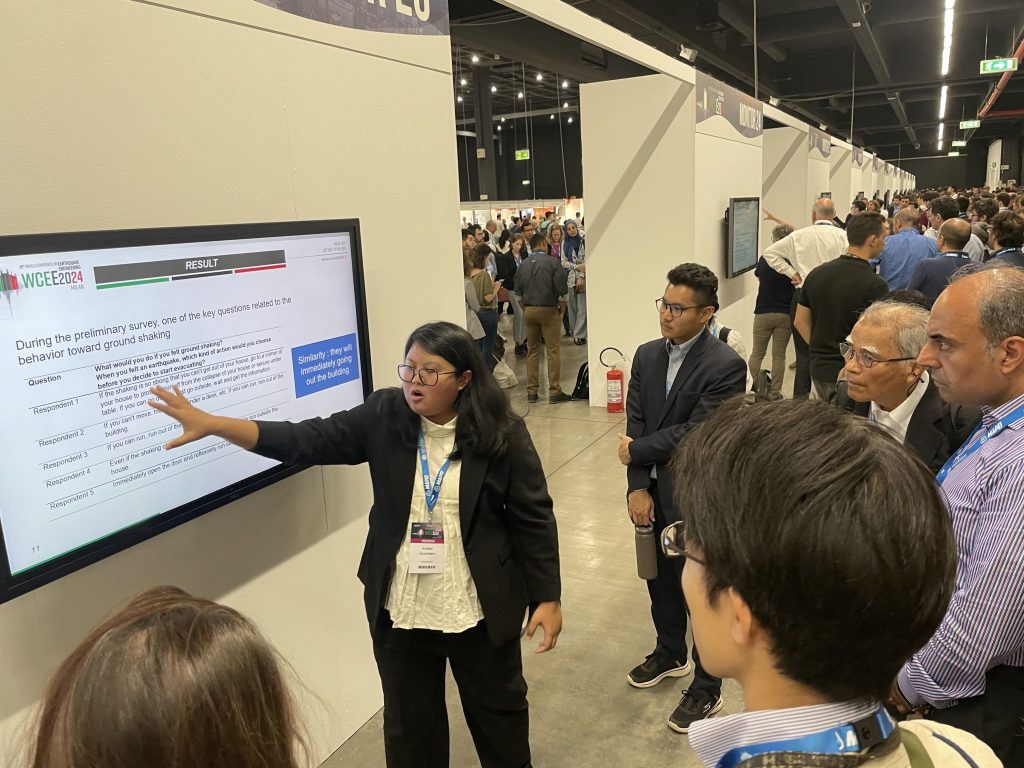2024年7月3日(水)論文が公開されました.
K. Sujatmiko, Y. Okumura, R. Abdulharis, A. Handayani, FIELD SURVEY ON FACTORS AFFECTING THE INITIATION OF TSUNAMI EVACUATION IN YOGYAKARTA, INDONESIA, Proceedings of the 18th World Conference on Earthquake Engineering, TNM1/4/6,8p, 2024, Milan.
Abstract
This study examines the interplay between disaster knowledge, social cues, and individual decisionmakingduring tsunami events in Indonesia. Indonesia has an established tsunami early warning system(InaTEWS) in place, emphasizing the significance of technology and the often-overlooked social dimension indisaster response. The research draws on the experiences of the Parangtritis community, a coastal region thatdirectly confronts tsunami threats. The findings reveal that, the majority of respondents (90.7%) choose to get out of their house immediately after feeling ground motion. Government guidance could play a role in shaping these behaviors, in general the recommended evacuation procedures provided by the governments of Indonesia are not significantly different with other countries. However, in Indonesia, there is a distinct recommendation to leave the house when one feels safe. However, after leaving the house they did not immediately go to the evacuation site but waited to be exposed to other triggers. For both the Parangtritis community and the broader Indonesian population, observing the actions of others significantly influences evacuation decisions. Additionally, the study underscores the impact of disaster knowledge on individuals’ decision-making. Those who have received disaster preparedness training are more likely to take early evacuation actions, highlighting the significance of education and training in disaster preparedness. This finding challenges the notion that fear alone can guarantee proactive evacuation responses.
